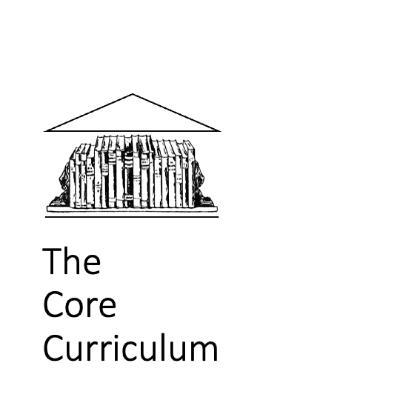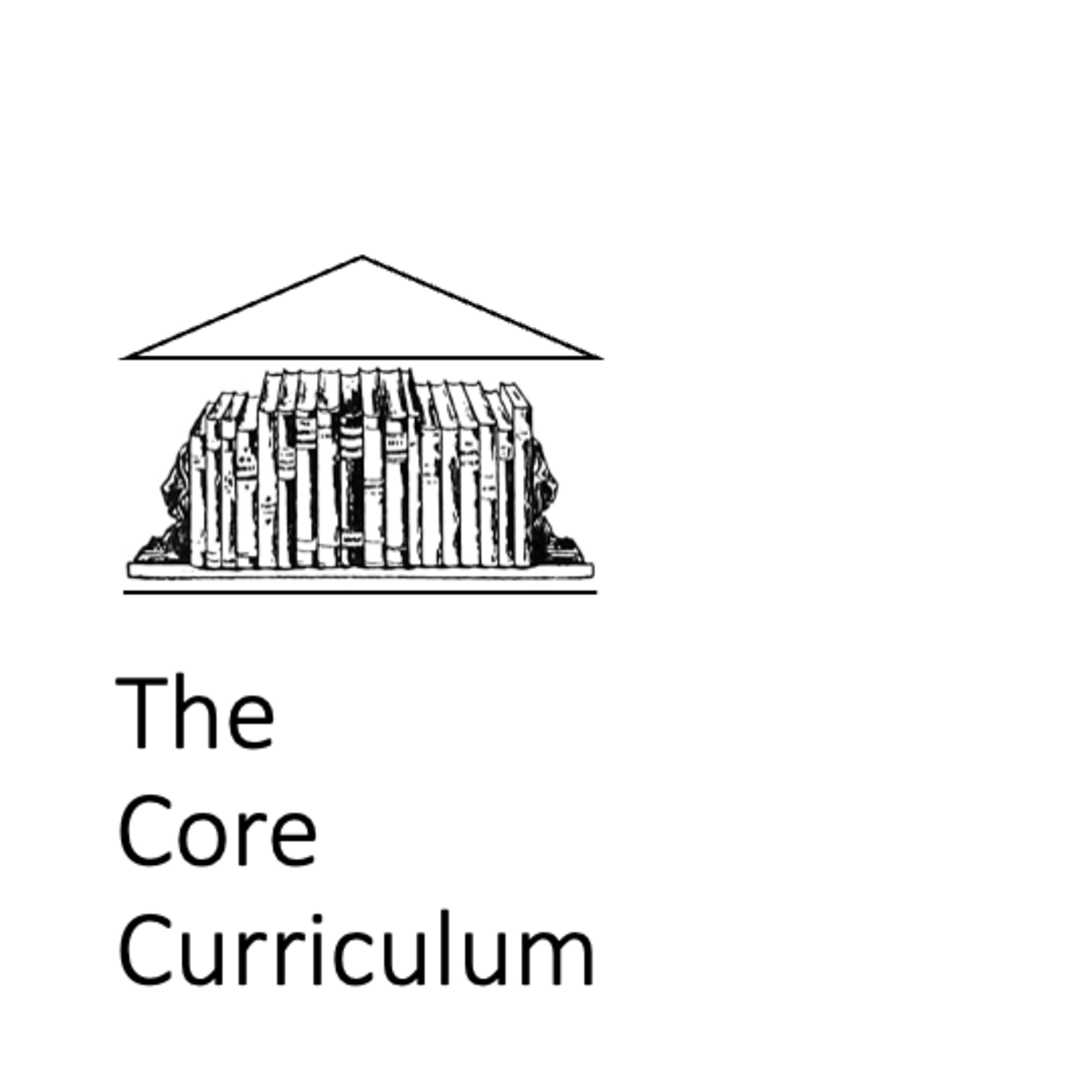Discover The Core Curriculum
The Core Curriculum

The Core Curriculum
Author: Jelle Laverge
Subscribed: 0Played: 14Subscribe
Share
© Jelle Laverge
Description
This podcast is trying to give voice to thoughts that might have occurred to you since the pandemic or longer: what are the universities core tasks indeed?
It’s an outgrowth of the ‘core tasks debate’ at Ghent University, in which the urgency of coming to a feasible budget kneecapped the opportunity to take time to come to terms with that question. The medium of a podcast provides an opportunity to create this much needed time for discussion. The aim of the podcast is to alternate interviews with random UGent’ers from all stripes and colors with interviews with critical friends.
It’s an outgrowth of the ‘core tasks debate’ at Ghent University, in which the urgency of coming to a feasible budget kneecapped the opportunity to take time to come to terms with that question. The medium of a podcast provides an opportunity to create this much needed time for discussion. The aim of the podcast is to alternate interviews with random UGent’ers from all stripes and colors with interviews with critical friends.
14 Episodes
Reverse
In this episode, my guest is my colleague Lieve Van Hoof, former president of the UGhent PostDoc community, former co-president of the Young Academy and professor in late antiquity at Ghent university. Is a revolution in academic assessment unfolding? That was the theme of a recent forum by the University Foundation, in which Lieve was a panelist. In this episode we try to unpack this very enticing subject for you!
In this second episode of the 3rd semester, my guest is Michaël Michiels, an alumnus of what would later become the International Institute of Restorative Practices Graduate School in PennSylvania and coach supporting teams to find more soul in their joint goals. We talk about learning, successful decision making processes and about the tension between selection and growth.
Welcome to the 3rd semester of ‘the core curriculum’, a podcast in which we explore the core tasks that we ascribe to the often age old institutions called ‘universities’. After having talked at length about education and research, the 2 traditional pilars in the mission statement of universities:, in this semester, we zoom out and shift the focus to the institutional context around these core tasks.
This episode is episode 1 of this semester, and in it, I’m interviewing Bram Van Oostveldt. He is a professor in Theater Studies and a colleague housed in the same building as the group that I’m a part of. As plans to completely remodel our building are being drawn up, we talk about imbedding our work in the cultural scene of the city, and how deliberately abandoning the walled campus model creates opportunities for both research and education.
As always, thank you for listening, I hope you enjoy this episode! Stay tuned for the next one, which will be an interview with Michael Michiels, a team management coach and alumnus of the International Institute of Restorative Practices Graduate School in PennSylvania.
In this episode, we’re talking to Rik Van de Walle, our rector, about ‘basic research funding’; a new policy introducing non-competitive research funding for all professors at Ghent University. And of course, this is just a starting point for a broader conversation about research and the core tasks of a University.
As sometimes happens in an academic setting, things did not go entirely as planned for the final episode of this semester and we will have to try again during summer. So stay tuned for an interview with our Ghent University rector Rik Vandewalle on the recently introduced move towards ‘basic research funding’ as a summer snack before the start of the fall semester that will focus on organizational structures that support the core tasks of the university.
In this 4th episode of the second semester of The Core Curriculum, I’m interviewing someone who has been a constant source of inspiration for the development of my personal views on research policy: Els Stuyven, director of research affairs at HOGent University of Applied Sciences and Arts, and above all chief architect of their pioneering move towards non-competitive internal funding.
In this third episode of the second semester of The Core Curriculum, I’m joined by 2 of the 3 junior researcher staff members in our board of governors at Ghent University. We discuss their successful campaign for more postdoc funding and we dream about an ideal university for young researchers.
In this second episode of the second semester of The Core Curriculum, we continue to look at the role of research as a core task of the university. This time we zoom out and look at the fit of academic research within the broader innovation ecosystem of our society in an interview with Karel Volckaert, COO at Itinera.
Welcome back to the second semester of 'the core curriculum'. As announced last time, in this semester we will focus on research as one of the core tasks of the university. In this first episode of the new semester, I'm interviewing Erik Meers, a colleague from the school of bioscience-engineering with a rather successful and diverse research group.
In this final episode of the first semester of ‘the core curriculum’, we pause to look back at what lies behind. With Pieter Dhondt, a historian studying the modern Western-European university, we dive into the genesis and development of the narrative on the core tasks of the institution, focusing on the shift between the early-modern and the modern period.
This week, we finally sit down with the most numerous tribe of academia, the students. I’m extremely grateful that all three of the students that are included in our board of governors took time out of their busy schedules to share their views on the matter. From their different professional, social and political backgrounds, they showcase the range and contention in societal expectations about higher education, and at the same time the remarkable consensus around some core features.
In the first episode, Graham Culbertson mentioned that at some level, it is perhaps impossible to justify the need for the humanities and by extension of universities. Nevertheless, at least in Belgium, the most prominent justification is often that the education they provide supplies the economy with much needed human capital and talent. Therefore, in this episode, we are exploring the core tasks of the university from an employers perspective.
In this second episode of the 'the core curriculum' podcast, I'm interviewing Eef Boeckx en Kris Coremans. As 'onderwijsbegeleiders', a for of permanent teaching assistant staff, they form an essential bridge between the academic staff and the students in our little 'universitas magistrorum et scholarium'. A position that prompted them to spearhead a 'student lead' initiative in our curriculum. Let's find out what they think are the core tasks of our institute.
Welcome to ‘the core curriculum’
This podcast is trying to give voice to thoughts that might have occurred to you since the pandemic or longer: what are the universities core tasks indeed?
It’s an outgrowth of the ‘core tasks debate’ at Ghent University, in which the urgency of coming to a feasible budget kneecapped the opportunity to take time to come to terms with that question. The medium of a podcast provides an opportunity to create this much needed time for discussion. The aim of the podcast is to alternate interviews with random UGent’ers from all stripes and colors with interviews with critical friends.
In the first episode I wanted to take some space to think about that big question myself: what really are my core beliefs about a university, an institution to which I have devoted all my adult life. Therefore, I was thrilled that fellow podcaster and academic Graham Culberson was willing to come on the podcast to bounce our hopes, doubts and aspirations off each other. Graham's own podcast is titled 'everyday anarchism' and I warmly recommend it to anyone interested in how practises of mutual aid define our daily life






